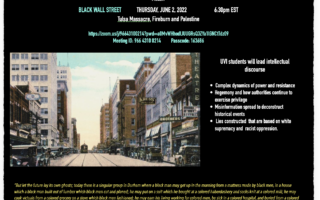Sonya Massey ducked, raised her hands above her head and apologized to an Illinois sheriff’s deputy seconds before he shot her three times, in her home, with one fatal blow to the head.
by Shugga D. Rosenbloom
UPDATED June 28, 2024. (Cannes, France, July 24, 2024). In yet another heart-wrenching and infuriating example of racial injustice in the United States, the tragic murder of Sonja Massey has left the Black community reeling with anger and frustration.
Grayson pointed out a pot sitting on a flame on the stove.“We don’t need a fire while we’re here,” he said. Massey immediately got up and went to the stove, moving the pot near a sink. She and Grayson seemed to share a laugh over her pan of “steaming hot water” before she unexpectedly said, “I rebuke you in the name of Jesus.”
“You better (expletive) not or I swear to God I’ll (expletive) shoot you in your (expletive) face.” He then pulled his 9mm pistol and demanded she drop the pot. [Massey raised her hands above her head} and said, “OK, I’m sorry.” In Grayson’s body camera footage, he pointed his weapon at her. She ducked behind the counter. When she lifted her head Grayson shot her thre times, one fatally in the face. (reprinted from AP NEWS)

Sonya Massey, a vibrant young woman with her life ahead of her, was brutally gunned down by a police officer whose actions were nothing short of premeditated murder.
As the chilling events were captured on camera, Sonya’s desperate cry of “I rebuke you, Satan, in the name of Jesus” echoed as a plea for divine intervention.
“…I rebuke you, Satan, in the name of Jesus”
This heartless officer, rather than providing the help he was sworn to deliver, coldly threatened and followed through with his threats to shoot her in the face.

The outrage is compounded by the officer’s refusal to assist Sonya as she lay dying. He callously dismissed the idea of trying to save her life, implying her fate was sealed with his cruel comment about the futility of helping a headshot victim.
After Grayson shot her, Grayson discouraged his partner from grabbing a medical kit to save her.“You can go get it, but that’s a headshot,” he said. “There’s nothing you can do, man.
”He added: “What else do we do? I’m not taking hot (expletive) boiling water to the (expletive) face”Noting that Massey was still breathing, he relented and said he would get his kit, too. The other deputy said, “We can at least try to stop the bleeding.”
Grayson told responding police, “She had boiling water and came at me, with boiling water. She said she was going to rebuke me in the name of Jesus and came at me with boiling water.” (section reprinted from AP NEWS)
This lack of humanity and empathy is indicative of a deep-seated problem within some law enforcement agencies—a culture of racism and impunity that continues to claim innocent lives.
Adding insult to injury, the initial police narrative attempted to shift blame and obscure the truth.
The lies spun were egregious: they claimed it was a self-inflicted wound, then suggested it was a suicide, and even tried to pin it on a neighbor.

These blatant attempts to distort the facts were laid bare by video evidence, which clearly showed the officer’s guilt.Such incidents beg the question: What do we do now? How can we ensure that Sonya Massey’s death is not in vain?
It is evident that expressions of condolences, like the letter of grievance sent by the President and Vice President, are insufficient.
We need substantial action and reform
We need substantial action and reform. While the administration acted swiftly with an anti-Asian hate bill, the ongoing struggle to pass the George Floyd Justice in Policing Act highlights the need for an equally urgent focus on protecting Black Americans.
An executive order targeting hate crimes against Black Americans is long overdue. Our community demands and deserves the same protection and swift legislative action that has been extended to others.
 It is imperative to recognize and address the systemic racism that permeates law enforcement and to hold accountable those who perpetrate such heinous acts.
It is imperative to recognize and address the systemic racism that permeates law enforcement and to hold accountable those who perpetrate such heinous acts.
As we reflect on the privileged safety that those in the Caribbean and other parts of the world may enjoy, we are reminded of the harsh realities faced by Black Americans daily.
We must question whether calling the police for help is a risk too significant to take.
The system, as it stands, often leaves us to wonder if we will emerge from such encounters alive.
To honor Sonya Massey, we must channel our anger into action.
 To honor Sonya Massey, we must channel our anger into action.
To honor Sonya Massey, we must channel our anger into action.
We must demand accountability, justice, and comprehensive reform.
This is a pivotal moment to stand united in our fight against racial injustice and to ensure that the lives of Black Americans are valued and protected.
The blood of Sonya Massey cries out for justice, and we cannot rest until that justice is served.



